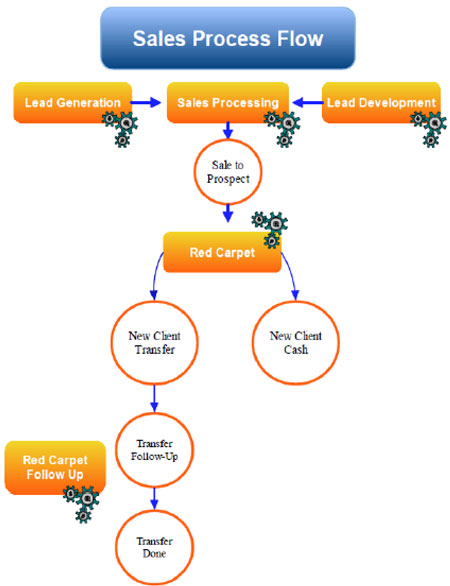The Sales Pipeline
Quote of the Month: “The first objective of any lead development conversation is to deepen your knowledge of the prospect.” – Mike Steranka
The Sales Pipeline consists of clients and prospects in the process of buying something.
The pipeline can be broken down into four phases:
Lead Generation: These are the actions taken to create a lead for the first time.
Example: Asking for referrals, seminars, cold calling, etc.
 Lead Development: The actions taken to push a prospect or existing client to a first appointment in a sales process.
Lead Development: The actions taken to push a prospect or existing client to a first appointment in a sales process.
Example: Follow up phone calls, follow up letters (these can be found in our the First Income Advisor member portal below).
Lead Generation differs from Lead Development primarily in the messages which contain a great deal of information about the firm, the team and the company. However once someone has received that information, it would be pointless, if not senseless, to send it again.
Sales Process: Once the first appointment is set, the lead is managed with sales processing. This covers second, third, and subsequent appointments as well as rescheduling. The end result of this phase is “Sale to Client” or “Sale to Prospect.”
Red Carpet: New sales are managed with the Red Carpet follow-up system.
Example: The letters found in the First Income member portal below.
When you get the “yes” from that new client, you will begin a process to welcome them to your investment family. This process is designed to show your personal appreciation for the opportunity to work with them, introduce your new client to your team, direct them to your service assistant for service questions, build rapport and promote the idea that you accept referrals—all right from the get go.
Marketing Tip of the Month:
Take the time to map out your pipeline 6 months in advance. It’s important to know where leads are coming from and when you will be expecting them to come in so you and your staff are prepared.
“The man who stops advertising to save money is like the man who stops the clock to save time”




Leave a Reply
Want to join the discussion?Feel free to contribute!